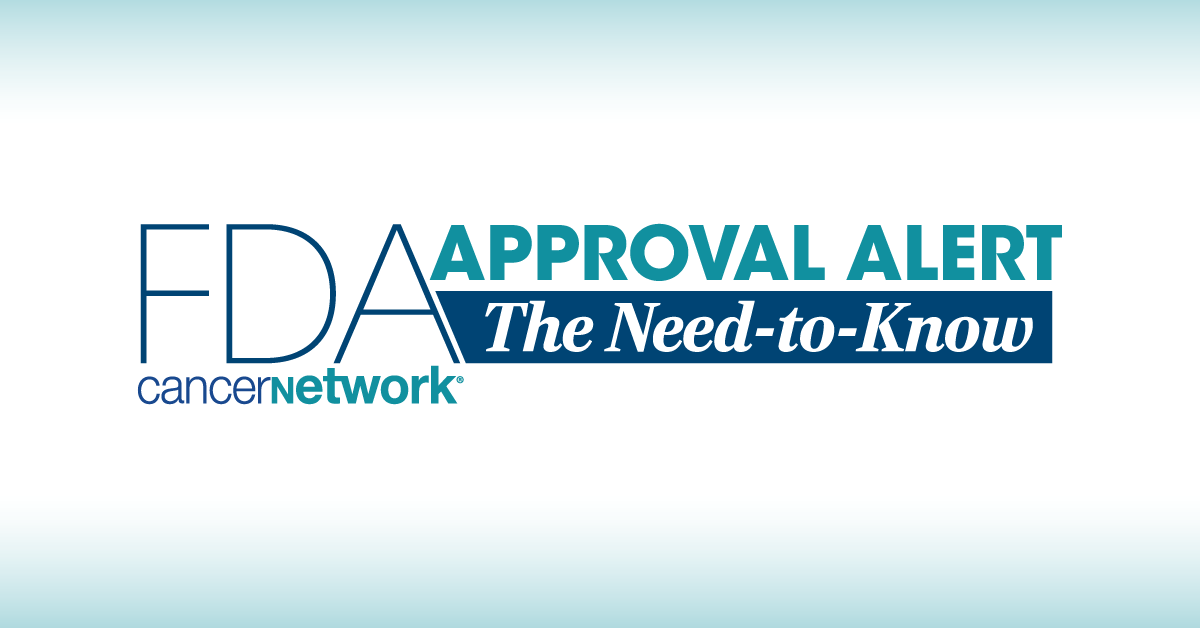FDA OKs Axatilimab in Pediatric/Adult Chronic GVHD
Results from the phase 2 AGAVE-201 trial of axatilimab for patients with relapsed/refractory chronic GVHD support the FDA approval.
The recommended dose for those with at least 40 kg is 0.3 mg/kg for up to a maximum of 35 mg. This should be given intravenously over 30 minutes every 2 weeks until disease progression or unacceptable toxicity.

The FDA has approved axatilimab-csfr (Niktimvo) for patients who weigh at least 40 kg with chronic graft-versus-host disease (GVHD) after progression on 2 prior lines of systemic therapy, according to a press release from the agency.1
The approval is based on results from the phase 2 AGAVE-201 trial (NCT04710576), which assed efficacy and safety in patients with relapsed/refractory chronic GVHD. Results were previously presented at the 2023 American Society of Hematology (ASH) Annual Meeting.2
The recommended dose for those with at least 40 kg is 0.3 mg/kg for up to a maximum of 35 mg. This should be given intravenously over 30 minutes every 2 weeks until disease progression or unacceptable toxicity.
“Axatilimab, with its unique mechanism of action, may represent a new therapeutic strategy in chronic GVHD,” Daniel Wolff, MD, PhD, of the University Hospital of Regensburg in Germany, said in a presentation of the data during ASH.
Three dose levels of axatilimab were assessed in adult and pediatric patients. The primary end point was overall response rate (ORR) through cycle 7 day 1, which included complete or partial responses via the 2014 NIH Consensus Development Project on Response Criteria.
In the recommended dosage cohort, the ORR was 75% (95% CI, 64%-84%). The median time to first response was 1.5 months (range, 0.9-5.1), and the median duration of response was 1.9 months (95% CI, 1.6-3.5). Of note, 60% (95% CI, 43%-74%) patients with a response did not die or initiate new systemic therapy for at least 12 months since response.
Topline data from the ASH presentation found an ORR of 74% (95% CI, 63%-83%) in the 0.3 mg/kg every 2 weeks group, 67% (95% CI, 55%-77%) at 1.0 mg/kg every 2 weeks, and 50% (95% CI, 39%-61%) at 3.0 mg/kg every 4 weeks.
Common adverse effects included laboratory abnormalities such as increased aspartate aminotransferase, infection (pathogen unspecified), increased alanine aminotransferase, and decreased phosphate.
References
- FDA approves axatilimab-csfr for chronic graft-versus-host disease. News release. FDA. August 14, 2024. Accessed August 14, 2024. https://shorturl.at/Iqnno
- Wolff D, Cutler C, Lee SJ, et al. Safety and efficacy of axatilimab at 3 different doses in patients with chronic graft-versus-host disease (AGAVE-201). Blood. 2023;142(suppl 1):1. doi:10.1182/blood-2023-186963
Navigating AE Management for Cellular Therapy Across Hematologic Cancers
A panel of clinical pharmacists discussed strategies for mitigating toxicities across different multiple myeloma, lymphoma, and leukemia populations.